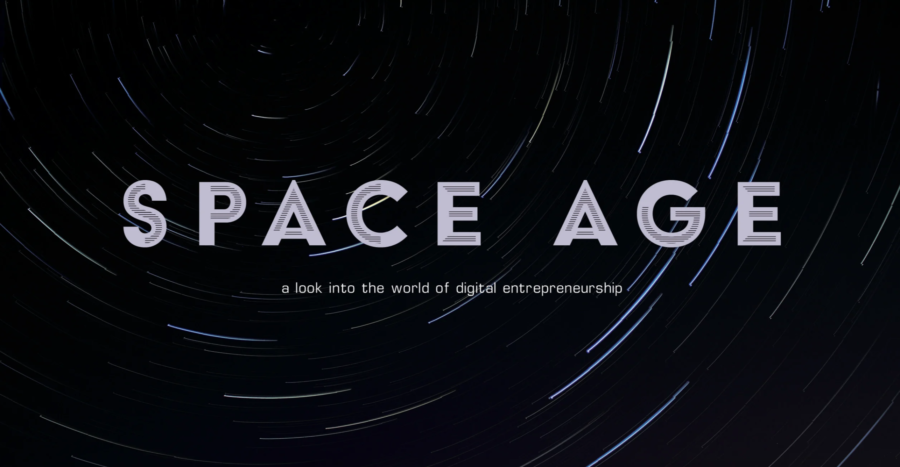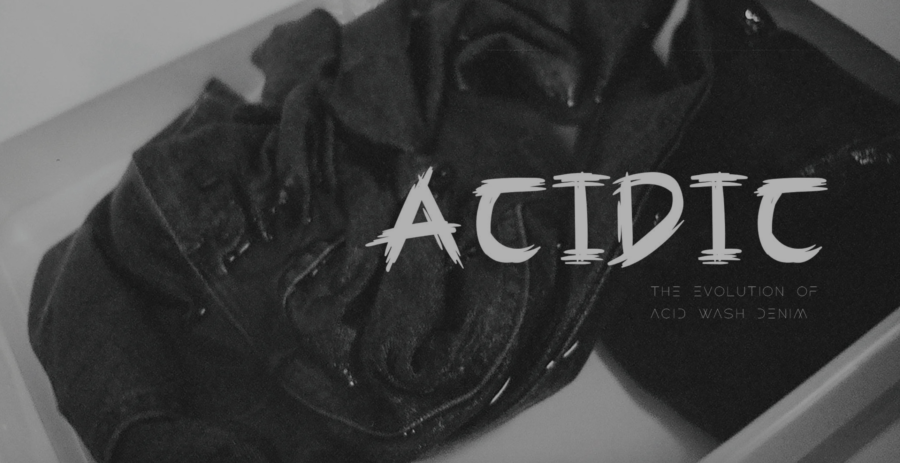On a cool, damp fall morning, I hoisted a fellow student into a trash-filled bin as I took a sharp departure from my normal Sunday routine of church and football.
The blue bin was behind an apartment complex a half of a mile from the TCU campus. Its rusted interior was filled with garbage bags, water-logged boxes and torn pieces of what was once the hottest new piece of clothing.
As cars drove by cutting through the heavy air, I knew the drivers were wondering what a TCU student was doing hoisting another student into a musty trash bin.
The pungent odor of rotten fruit and stale pastries filled the air as he flipped over bags and boxes in search of a "cool find.”
As he searched for a cool electronic or a salvageable pair of jeans, he was pulling items from the waste stream, putting them back into use.
A growing number of Americans are becoming dedicated recyclers, scanning the trash for items they can re-use.
Those individuals consume less and pull items from the waste stream in order to live a more eco-friendly and sustainable life.
From societies like the Diggers in San Francisco to the Freegans in New York, Americans are choosing to step back from America’s culture of consumerism.
That national movement for less consumption and more saving has several leaders on the TCU campus.
Jeff Ferrell, university sociology and anthropology professor as well as author of "Empire of Scrounge," said he has been jumping into dumpsters since his college years.
For Ferrell, dumpster-diving, or scrounging as it is more eloquently called, serves a distinct purpose, he said.
Ferrell said he uses scrounging as a way to reduce his eco-footprint and to remove items from the waste cycle.
“I started scrounging when I was in graduate school,” he said. “I go out five to six days per week on my bicycle hitting maybe 100 dumpsters and looking for anything from food to clothes to scrap metal to tools.”
Over seven years ago, Ferrell said he took a year off from teaching to see if he could almost live off scrounging entirely.
“I wanted to see if I could push it a little bit further in terms of reducing my eco-footprint,” Ferrell said. “In terms of its use and sustainability, I see it all as pulling things out of the waste stream and putting them back into use.
For Ferrell, scrounging is just one part of a lifestyle dedicated to reducing an eco-footprint and to showing less dependence on America’s culture of consumerism, he said.
“I really make an effort to only be in a car when it’s absolutely necessary,” Ferrell said during one of his rare moments of riding in a car.
He continued saying, “I walk or bicycle wherever I can. We grow gardens out back, and I have a compost recycling system. It’s kind of a holistic, integrated way of life that is as best you can outside the circle of burning gas and buying new things.”
Ferrell is not alone in his pursuit to reduce his eco-footprint.
The Freegans are a national society of people dedicated to reducing their dependence on consumerism.
The national website for Freeganism states, “Freegans are people who employ alternative strategies for living based on limited participation in the conventional economy and minimal consumption of resources.”
Gio Andollo, a Freegan living in New York, said he has removed himself almost entirely from the culture of consumerism.
“We’ve seen people wanting to live in a way that has less of an impact on the environment,” Andollo, who currently squats in a New York apartment, said.
Andollo noted that in post-industrialized economies, animals, people and the environment are all being exploited.
“Eating food out of the garbage is not the entire part of living out the Freegan worldview. Our objective is to subvert [consumerism] as creatively as possible. We build community as we are rescuing food, clothes or furniture,” Andollo said.
While Ferrell rides his bike, Andollo skateboards around New York city and tries to reclaim unused property through the practice of squatting.
Professors do their part
On TCU’s campus, Ferrell is joined in his pursuit of a Freegan-like worldview by fellow professors Keith Whitworth and David Aftandilian.
Whitworth, a sociology professor and native of Cleveland, Texas, said he utilizes public transportation to travel to and from the university.
“Transportation is my biggest challenge. I have been able to decrease my eco-footprint by using the county bus that leaves at 5:50 in the morning,” Whitworth, who teaches a class on sustainability, said. “Then I catch another bus over to TCU.”
As Whitworth transfers to one bus from another on his route to the university, he said he often has just 60 seconds to make the transfer. A delay in the transportation means a 30 minute wait.
“I have to jog to one bus, and if I miss that bus, I have to wait another 30 minutes,” Whitworth said.
He also owns a hybrid car, has a rain harvesting system, has a garden that grows much of his food and also owns chickens for egg production.
Aftandilian, a professor of anthropology, echoed Whitorth’s sentiment that Americans must buy less and save more.
“We in the United States use far more than our share of the world’s resources,” Aftandilian said. “Everything we can do to reduce what we use makes it possible for other people in the world to eat.”
As I walked into Aftandilian’s office, he handed me an article that he had printed out. The article was printed on a sheet of recycled paper that had previously been used as a class handout.
Aftandilian prints double-sided, turns the water off in the shower while he uses soap, buys recycled items and grows his own herbs in containers.
“I am part of the Tarrant County Food Policy Council, and we have a group that does community gardening,” Aftandilian said. “We’re going to develop a program targeting low-income people to teach them how to grow their own food.”
Sustainability at TCU
From the trays of waste at TCU’s Market Square to the overflowing bins of trash in the residence halls, the university offers some painful reminders of society’s waste.
So what are the most meaningful steps that students can take to reduce their own eco-footprint?
Ferrell said he believes that riding the bus more often or riding a bicycle is the best way for students to reduce their own eco-footprint.
“Think about the rhythms of your daily life. You may have a favorite restaurant across town, but eating down the street is a better option in terms of reducing your footprint,” Ferrell said.
Whitworth echoed Ferrell’s comments on using less fossil fuels, saying that is the easiest way for a university student to reduce their footprint.
“For example, if a student wants to go to a Mavericks game or a concert in Dallas, catch the train. I would recommend the train because we all can get the transit pass. It’s not necessarily convenient, but if students would take the bus one day a week or month, if you multiply that by 8,000 or 9,000 students, that makes a difference,” Whitworth noted.
For Aftandilian, the answer is more recycling.
“We don’t do anywhere near as much recycling as we could on campus,” Aftandilian said.
He suggests following the model set by The University of Chicago where recycling bins are collected daily, but trash bins are only collected weekly to encourage more recycling.
No matter which approach appeals to the most people, the key for university students is awareness of one’s habits and waste level.
Ferrell explained, “If you’re caught up in buying the latest computer or the latest iPhone or even the latest styles for spring even if you’re thinking of that as a personal choice, that’s getting seduced into a system of waste and unsustainable living.”
He continued saying, “I scrounge all the shoes I wear, and people say, ‘Wow, you’re wearing those vintage Jordans.’ I just found them.”
While most students may stop short of hopping in a dumpster on a damp Texas day, the combination of small initiatives can make a substantial impact the global environmental outlook.




